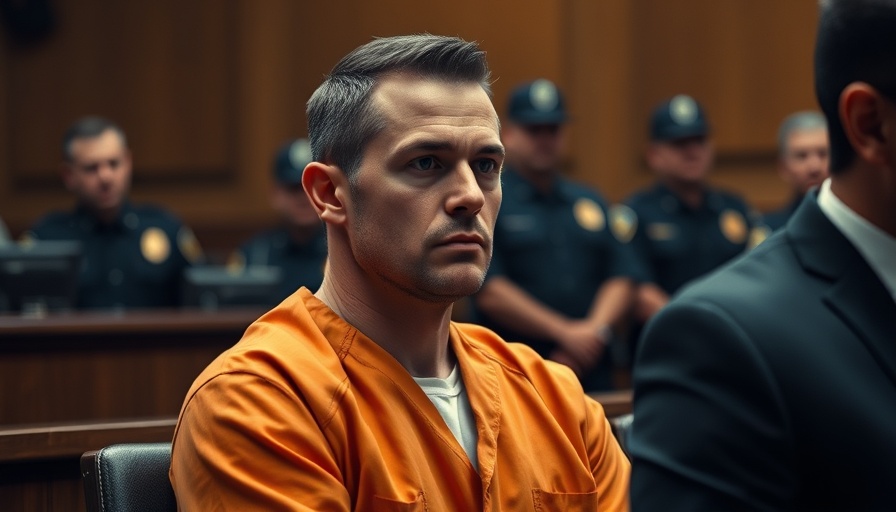
Tragic Fallout: A Father’s Grief Translates to Violence
In a shocking and tragic turn of events in Ohio, a man allegedly killed a deputy with his vehicle just a day after his teenage son was fatally shot by police. This harrowing incident underscores the emotional turmoil that can follow police-involved shootings, and raises questions about the impact of violence on families and communities.
The Sequence of Events That Led to Violence
The day before the deputy's death, police had shot and killed the man's son during an altercation that remains under investigation. Reports indicate that the son was armed at the time, and the encounter quickly escalated. As communities grapple with the aftermath, the father's alleged act of striking the deputy appears to be a horrific response to overwhelming grief and anger. This raises critical questions about how law enforcement and support systems can better address the mental health aspects surrounding violent incidents involving police.
The Ripple Effect: Communities in Crisis
This case, rather than being an isolated incident, highlights a larger issue within numerous communities across the country—increasing violence in the wake of police encounters. According to the FBI's Crime Statistics, police shootings often lead to gang retaliation and further violence, complicating an already tense environment. Advocates argue for the need for better communication and conflict resolution strategies within neighborhoods plagued by violence. Without resolution, the cycle of harm is destined to repeat.
The Emotional Impact on Families and Communities
Feeling the weight of loss and helplessness, communities often react differently to law enforcement actions. In many circumstances, families of victims are left feeling abandoned as they navigate their grief alone. This leads to a sense of disconnection between law enforcement and the community, exacerbating tensions. Understanding the emotion that accompanies such violent incidents can help in creating spaces for dialogue and healing.
Debating the Role of Law Enforcement Strategies
The callousness of violence brings to light the ongoing debate about law enforcement's approach to dangerous encounters. Should there be stricter protocols for police officers when approaching potentially dangerous situations? Many community leaders advocate for the continued training of officers in de-escalation tactics, reducing the likelihood of fatal encounters with individuals in crisis. Furthermore, discussions surrounding community-oriented policing initiatives can forge deeper connections that may prevent violence.
Future Predictions: A Need for Reform
As the national discourse around police reform continues to evolve, scholars and community members alike predict that this incident may serve as a catalyst for broader discussions about policing practices. Experts emphasize that more attention needs to be paid not only to the actions of law enforcement but also to the systemic issues that contribute to violent encounters. Solutions may involve multifaceted approaches including mental health support for individuals interacting with police and increased community engagement.
Taking Action: How Communities can Provide Support
The community has a vital role to play in preventing recurrences of such tragedies. Support systems must be put into place to help families cope with the aftermath of police involvement in their lives. Memorials, community discussions, or healing circles can serve as a space to express grief and foster discussion, paving the way for restoration.
In light of these tragic events, communities are urged to come together, not only to support the grieving father but to negotiate a path forward that promotes understanding and healing. Emphasizing mental health resources, community outreach, and engagement with law enforcement can contribute significantly to reducing potential violence stemming from grief and anger.
Engaging in preventive measures and dialogue can redefine relationships between communities and law enforcement, planting seeds towards collective healing. Everyone deserves safety and support, and by taking proactive steps now, communities can work towards a future where violence is not the response to grief.
 Add Element
Add Element  Add Row
Add Row 



Write A Comment